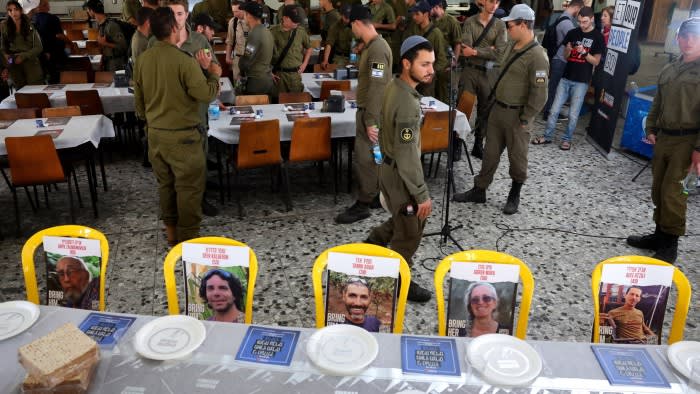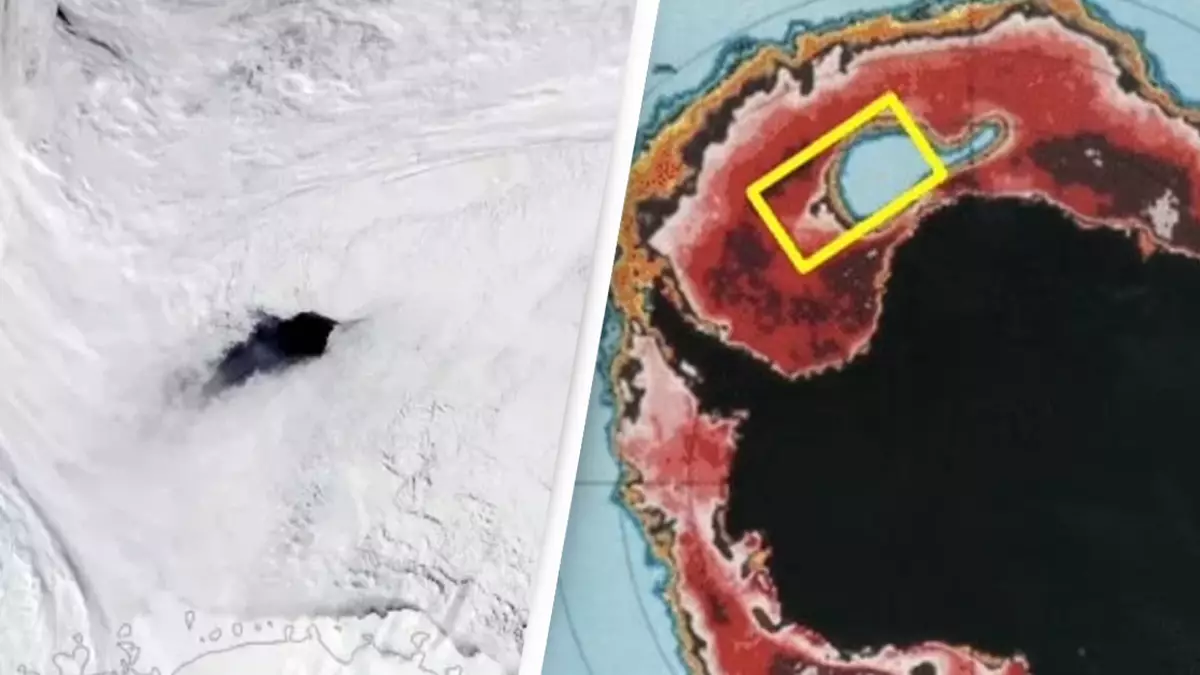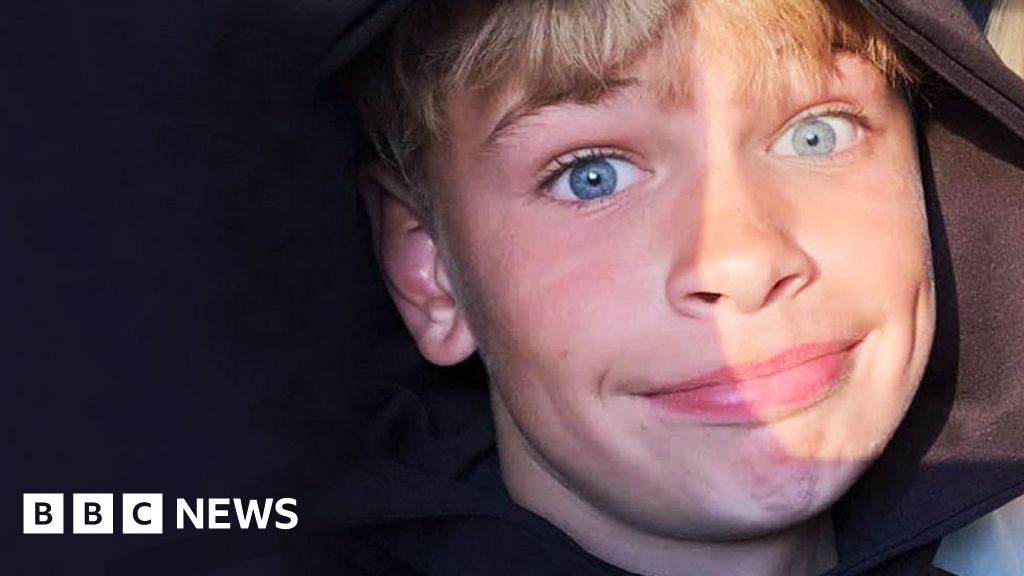As Israelis gather on Monday evening for the start of the Jewish holiday of Passover, the youngest family member in attendance will be given the task of asking the traditional question: “What has changed on this night from all other nights?”
This year, the answer for many will be: everything.
More than six months after Hamas’s October 7 attack, the worst loss of life in the country’s history, the war in Gaza continues to rage, with Israeli officials highlighting the threat from fronts across the Middle East. Only on Friday, its missiles struck inside Iran as part of a calibrated response against the Islamic Republic, who this month launched a first attack on the Jewish state directly from its own soil.
But the biggest change, according to Israelis, as they mark the exodus of the biblical Israelites from enslavement in Egypt, is that more than 130 of their fellow citizens are still held captive in Gaza, their fates unknown.
At Passover eve seder tables across the country, an empty place will be set to remember the hostages still in Hamas captivity. Chairs and ribbons of yellow, the colour of the movement to release the hostages, will also be arranged around the dinner table.
“Let our loved ones go,” the relatives of the hostages demanded at their weekly demonstration in central Tel Aviv on Saturday. Many planned on holding the seder dinner at the renamed “Hostages Square”, combining public protest and private anguish.
“I can’t imagine celebrating the ‘freedom holiday’ without my son,” said Dalit Shtivi of 28-year-old Idan, who was one of those kidnapped from the Nova music festival on October 7. “It’s so hard, I cannot explain the pain.”
Many Israelis feel the same way, with the traditional greetings of chag sameach, or “happy holiday”, dropped from most well-wishes.

“The feeling this year is one of guilt, that it’s not so OK to celebrate,” said Moshe Levin, a father-of-two from Tel Aviv.
“Not only because of the hostages, but also the many bereaved families,” he added. More than 1,200 Israelis were killed during the cross-border Hamas attack, according to official figures, while nearly 300 soldiers have died in the ensuing Gaza war.
In excess of 34,000 Palestinians have been killed in the course of the Israeli military’s ferocious offensive in the besieged territory, according to health authorities in the Hamas-controlled enclave.
Israeli Prime Minister Benjamin Netanyahu has vowed that the war effort will continue. In his Passover greeting recorded on Sunday, he promised “additional painful blows” against Hamas would be delivered “soon” so as to secure the hostages’ release and “achieve our victory”.
Most Israeli military analysts, and a wide segment of the public, view the Gaza campaign as having stalled, with the Netanyahu government admitting that hostage talks with Hamas have reached an impasse.
The long-serving Israeli premier attempted to link the present-day conflict to Jewish struggles of the past, and not just in antiquity.
For many Israelis, the resonance of a Passover holiday marked by war and grief revived memories of Jewish festivals celebrated mutely in the ghettos of Europe during the Holocaust, or the night in 2002 during the second intifada, or uprising, that a Palestinian suicide bomber detonated himself among worshippers in an Israeli coastal hotel.
“Why is this night not different?,” Netanyahu asked. “That in every generation they rise up to destroy us, and the Holy One, blessed be He, saves us from them. This time as well we will overcome those who seek our lives.”

In recent days, there has at least been a semblance of some of the regular rituals of an approaching Passover: children off from school, boxes of traditional matza flatbread stacked high in supermarkets, the home cleanings and burning of leavened products, and springtime sunbathers on the Mediterranean shore.
Yet indications of unease and abnormality persist beneath the surface.
The media, as in every year, aired warnings to the public of looming traffic jams on Monday evening as people drive to be with their families. But this year would be particularly bad, authorities explained, with nearly 100,000 people still unable to return to their homes around the shattered frontier with Gaza and along the border with Lebanon, which has seen near daily cross-border fire from the Iran-backed Hizbollah movement.
“The country has been effectively shrunk to its centre,” one columnist wrote in the left-leaning Haaretz daily.
Ben Gurion International Airport was still expected to be busy for those with tickets to travel abroad — although that was contingent on foreign carriers not having cancelled their Tel Aviv routes because of the recent Iranian missiles.
Partly for this reason, the number of Israelis who will spend Passover inside the country — whether by choice or not — was expected to be an all-time high. Many soldiers and reservists will be spending it away from their families deployed on the front lines, with the military on its highest war footing. It would be, most Israelis agreed, a decidedly gloomy week-long festival.
“A kosher Passover holiday to all the people of Israel,” Netanyahu signed off his holiday greeting. The word “happy” was conspicuously absent.

Sophie Anderson, a UK-based writer, is your guide to the latest trends, viral sensations, and internet phenomena. With a finger on the pulse of digital culture, she explores what’s trending across social media and pop culture, keeping readers in the know about the latest online sensations.








